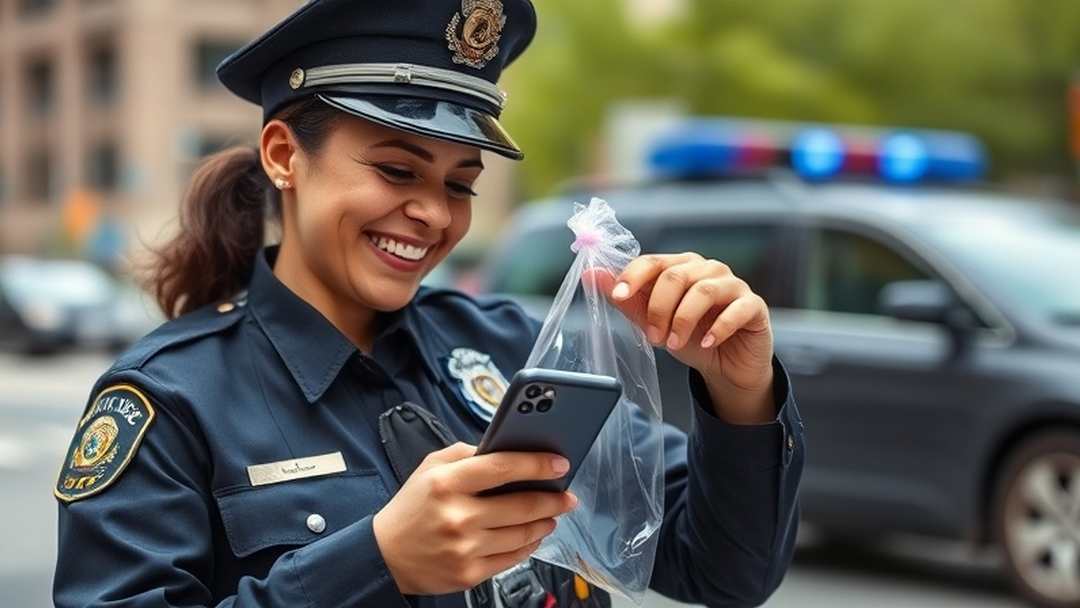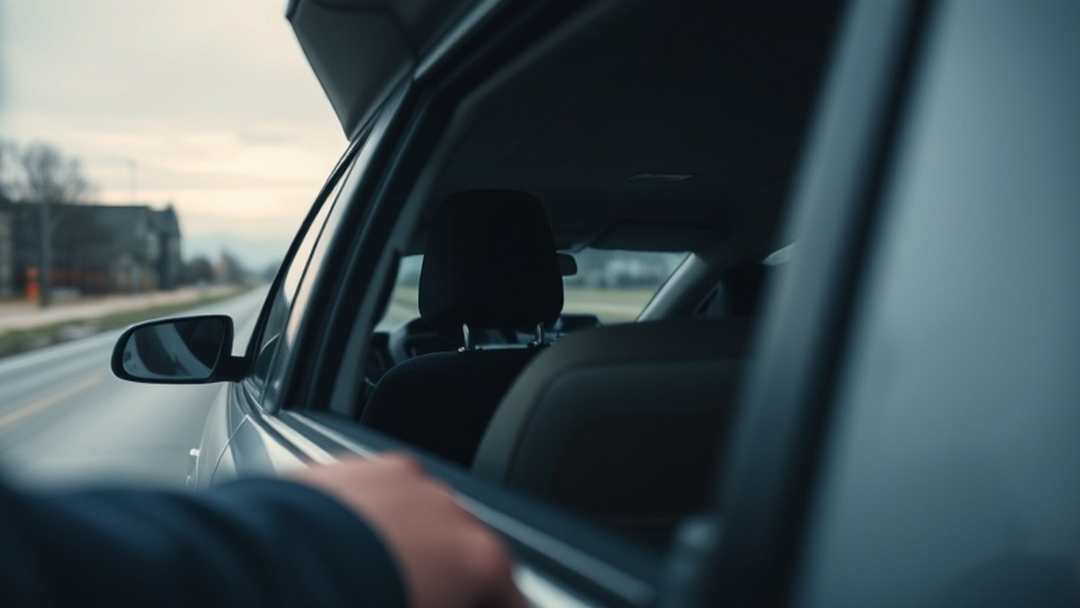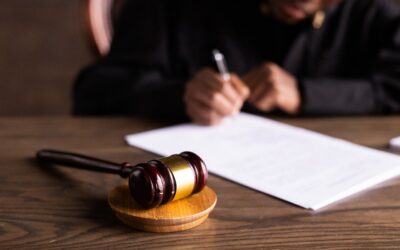Michigan Rules 901-903 – Evidence Authentication
Ever wondered how that document or recording made its way into a Michigan courtroom? The answer lies in Michigan Rules of Evidence 901 to 903, which govern the crucial step of authenticating evidence.
This article provides a factual, no-nonsense breakdown of these rules, drawing insights from the official Michigan Rules of Evidence Handbook.
Rule 901: The Key to Admission
At its core, Rule 901 states that before any evidence can be considered by the court, it must be properly authenticated.
This means proving, through sufficient evidence, that the item is indeed what it’s claimed to be. Think of it as verifying the identity of a witness before they can testify.
The rule doesn’t prescribe a specific method for authentication; it simply says there must be enough evidence to convince the judge that the item is genuine. This flexibility provides room for various situations and evidence types.
Unlocking Authenticity: Examples from the Handbook
The Handbook offers helpful examples to illustrate how Rule 901 might be satisfied in practice. Here are a few:
- Witness Testimony: Someone with firsthand knowledge of the evidence, like the author of a document or someone who witnessed a recording being made, can testify to its authenticity.
- Handwriting Analysis: A non-expert familiar with someone’s handwriting can offer their opinion on its genuineness based on familiarity, not just for this specific case.
- Comparison by Experts: An expert, like a handwriting analyst or audio-visual specialist, can compare the disputed item to known authentic samples.
- Distinctive Characteristics: The unique features of the evidence itself, like its internal patterns or specific content, can sometimes establish authenticity in conjunction with other circumstances.
- Voice Identification: Similar to handwriting, someone familiar with a voice can offer their opinion on its identity based on prior interactions.
- Telephone Conversations: Proof that a call was made to a specific number assigned to a particular person or business, coupled with self-identification during the call, can authenticate the conversation.
Have your rights been violated?
Have your driving priviledges been revoked?
Has your professional license been suspended?
Have you been charged with a crime?
Call our office to see if we can help
Komorn Law 248-357-2550
Rule 902: Self-Authentication Shortcuts
Certain types of evidence are so inherently reliable that they “speak for themselves” and don’t require additional authentication under Rule 901. Rule 902 lists these self-authenticating items, including government publications, certain business records, and certificates of marriage or birth.
Rule 903: Skipping the Witness in Certain Cases
Traditionally, written documents often required the testimony of a subscribing witness (someone who witnessed the signing) to be admitted. However, Rule 903 simplifies matters by stating that such testimony is unnecessary unless specifically required by other relevant laws.
Remember: These are just summaries, and the actual rules contain nuances and exceptions. For complex legal matters, consulting with a lawyer is always recommended.
Don't Own an F-16?
Just want your second amendment right back to protect yourself and your family? Call our office to see if we can help.
Important:
This article provides a simplified overview of the Michigan Rules of Evidence for informational purposes only. It should not be interpreted as legal advice. When facing legal matters, always consult with a qualified attorney for professional guidance.
The Michigan Rules of Evidence are subject to change over time. Always consult the latest official version for accurate information.
Here is the link to the Michigan Rules of Evidence Handbook. Check the footer for the latest update.
- You can find the latest versions of these resources on the Michigan Courts website: https://www.courts.michigan.gov/498aa6/siteassets/rules-instructions-administrative-orders/rules-of-evidence/michigan-rules-of-evidence.pdf
Related Articles
Evidence in Michigan Courts: Rule 801-807 Hearsay Evidence
Michigan Rules of Evidence 801-807 Hearsay: In the courtroom, truth-finding is paramount. Yet, not every statement offered as evidence directly reveals the truth. Enter the realm of hearsay, statements made out of court, and the complex rules governing their...
Evidence in Michigan Courts: Rule 701-707 Opinions
Opinions - Everyone's got one or two or three: A Look at Michigan Rules of Evidence 701-707 Lay Versus Expert Opinions (Rules 701 & 702) Before delving into specific rules, it's crucial to establish the fundamental distinction between lay witnesses and expert...
Evidence in Michigan Courts: Rule 601-615 Witnesses
Navigating the Witness Box: A Look at Michigan Rules of Evidence 601-615 In the courtroom, witness testimony plays a crucial role in unveiling the truth and determining the outcome of a case. However, not everyone can simply walk into the courtroom and take the stand....
Evidence in Michigan Courts: Rule 501 – Privilege in General
Rule 501. Privilege; General Rule. Privilege is governed by the common law, except as modified by statute or courtrule.Have your rights been violated?Have your driving priviledges been revoked?Has your professional license been suspended?Have you been charged with a...
More Posts

If I renounce my US citizenship can I get it back?
Venezuela or Bust If I renounce my U.S. citizenship can I get it back?Renouncing U.S. citizenship is a serious legal action. It involves voluntarily giving up your status as a U.S. citizen, usually by signing an oath of renunciation at a U.S. embassy or consulate...

New Laws in Effect for Michigan in 2025
Some laws in effect in 2025 "Enacted by the People of Michigan" Here we go...Minimum wage Improved Workforce Opportunity Wage Act - Michigan's minimum wage will increase twice during 2025, per a 2018 Supreme Court ruling. Starting Jan. 1, 2025, the standard minimum...

The Police Took Your Cellphone – Now What?
Everything you have and say will be evidence used against you. The Police took your cellphone - Now what?After your arrest, you arrive at the police station where you go through the booking process, and your cellphone is taken from you. Once you are released, your...

Feeling Bullied? Here’s Michigan’s Anti Bullying Laws.
Michigan Anti-Bullying Laws & Policies Components of State Anti-Bullying Laws and Regulations How are bullying and cyberbullying defined in Michigan anti-bullying laws and regulations? Michigan anti-bullying laws and regulations include the following...

Former 3M scientist who made unsettling PFAS discovery says bosses deceived her
Gee - What a surprise... When a former 3M scientist discovered the company’s chemicals were in human blood in the general population, she says her bosses misled her to believe it was harmless.3M accused of deceiving its own scientist about PFAS in human blood Hansen...

Drones – What Drones?
Jersey cops launched into the night sky with catapults to throw dreamcatchers at the unknown drones to entangle their props and bring em down! Just kidding - I think.Darrr.. What drones? Those drones pose no threat there are no drones. That's just a balloon,...

Cash For Kids Judge Pardoned (The Kickback Club)
Biden’s commutation for Judge in ‘kids for cash’ scandal should anger the entire universe.Biden’s commutation in ‘kids for cash’ scandal. BY MICHAEL RUBINKAMUpdated 5:32 PM EST, December 13, 2024A judge implicated in one of the most notorious judicial scandals in U.S....

How Much Does It Cost To Hire a Criminal Defense Attorney?
Don't do the crime - if you can't pay the price.Average Flat Fees. Some criminal defense attorneys charge a flat fee for certain types of cases, instead of billing by the hour. This may or may not include filing fees, motions, fees, etc. Flat fees include: DUI/DWI –...

What do you do when you are pulled over for suspected DUI?
If you are pulled over for suspected drunk driving you are probably going to be arrested. The less you say - the better off you are in the long run. If you find yourself being pulled over for suspected DUI, ensure you pull over safely to the roadside, maintain a...

Trump plans – How does Cannabis Business fit in?
You work hard. Now get ready to work harder to prepare to give more.President Biden's administration has proposed the reclassification of marijuana from a Schedule I controlled substance to a Schedule III drug, which recognizes its medical benefits. This significant...














